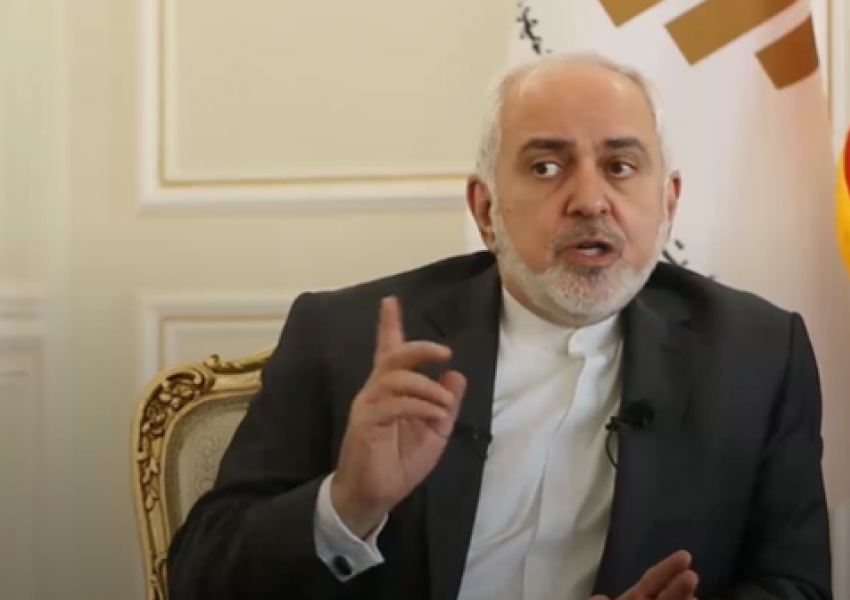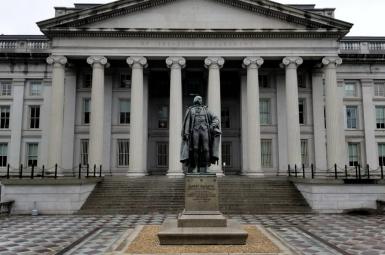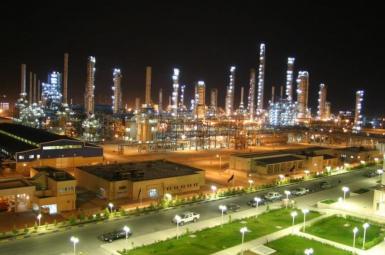
Zarif Says Lifting Sanctions And Financial Reforms Needed For Economy
There is no incompatibility between a ‘resistance economy’ and working to lift international sanctions, argues Mohammad Javad Zarif, Iran’s foreign minister, in an interview with INLA (Iranian Labour News Agency) on Saturday [January 23].
Zarif, who is floated as a possible candidate in June’s presidential election, criticized claims that the country’s economic problems were unrelated to US sanctions or being blacklisted by the inter-governmental Financial Action Task Force (FATF). “We should definitely implement the principles of ‘Resistance Economy’ but be aware that we could do this if weights on the ankles of the economy didn't drag it down,” he said.
The term ‘resistance economy’ was deployed by Supreme Leader Ali Khamenei in 2011 during an earlier wave of international sanctions. Khamenei called for reducing dependence on oil exports, and boosting domestic production particularly in gas, electricity, oil byproducts, petrochemicals and knowledge-based products. While some expansion took place in petrochemicals and metals production, Iran’s economy remains isolated in the world and dependent on oil exports.
Flipping the principlists’ arguments, Zarif said that US sanctions and Iran’s own failure to meet the requirement of the FATF – which sets standards for combating money laundering – were both obstacles to achieving a ‘resistance economy.’ “It will be like denying [light] when it's day if we close our eyes to this fact,” he said.
Principlists are opposing government bills – currently blocked in the watchdog Expediency Council – to accede to the FAFT and dislike the notion of returning to Iran’s 2015 nuclear deal with world powers in order to ease sanctions. Iran has been on the FATF blacklist since February 2020, imposing constraints on Iran’s international banking relations.
Many in business have spoken out in favor of FATF accession. On Friday the Chairman of Iran-UAE Chamber of Commerce, Farshid Farzanegan, told ILNA that without it, Iran would not be able to access international markets even if the US returned to the 2015 nuclear agreement − known as the Joint Comprehensive Plan of Action (JCPOA) − and lifted its sanctions. “We will be self-sanctioning ourselves,” Farzanegan said.
Zarif confronted the claim from hardliners that the Rouhani government had failed in weak “economic diplomacy,” arguing it had spared no effort to boost the economy or to secure the return of the United States to the JCPOA and thereby the easing of sanctions. He pointed out that a simple review of inflation and economic growth before and after Trump introduced ‘maximum pressure’ in 2018 showed damage done by sanctions. According to the IMF, GDP growth was 12.5 percent in 2016 and 3.7 percent in 2017, falling to minus 6.5 percent in 2019 and minus 5 percent in 2020: inflation rose from 9 percent in 2017 to 41 percent in 2019.
“Economic diplomacy means convincing others to conduct trade with Iran,” Zarif said. “Trade requires banking. It is an obstacle that banks are under sanctions and can’t [establish] relations, or that [other] countries face the problem of violating sanctions if Iranian ships arrive in their ports.”
Hardliners led by Mohammad Bagher Ghalibaf (Qalibaf), the parliamentary speaker and possible presidential candidate, have accused the government of President Hassan Rouhani of blaming sanctions for high inflation and other economic problems instead of taking responsibility for their own failings. In a speech in September, Rouhani said his opponents had given Iranians the “wrong address” for the cause of Iran’s difficulties, rooted in Washington DC and its “economic war” against Iran.









